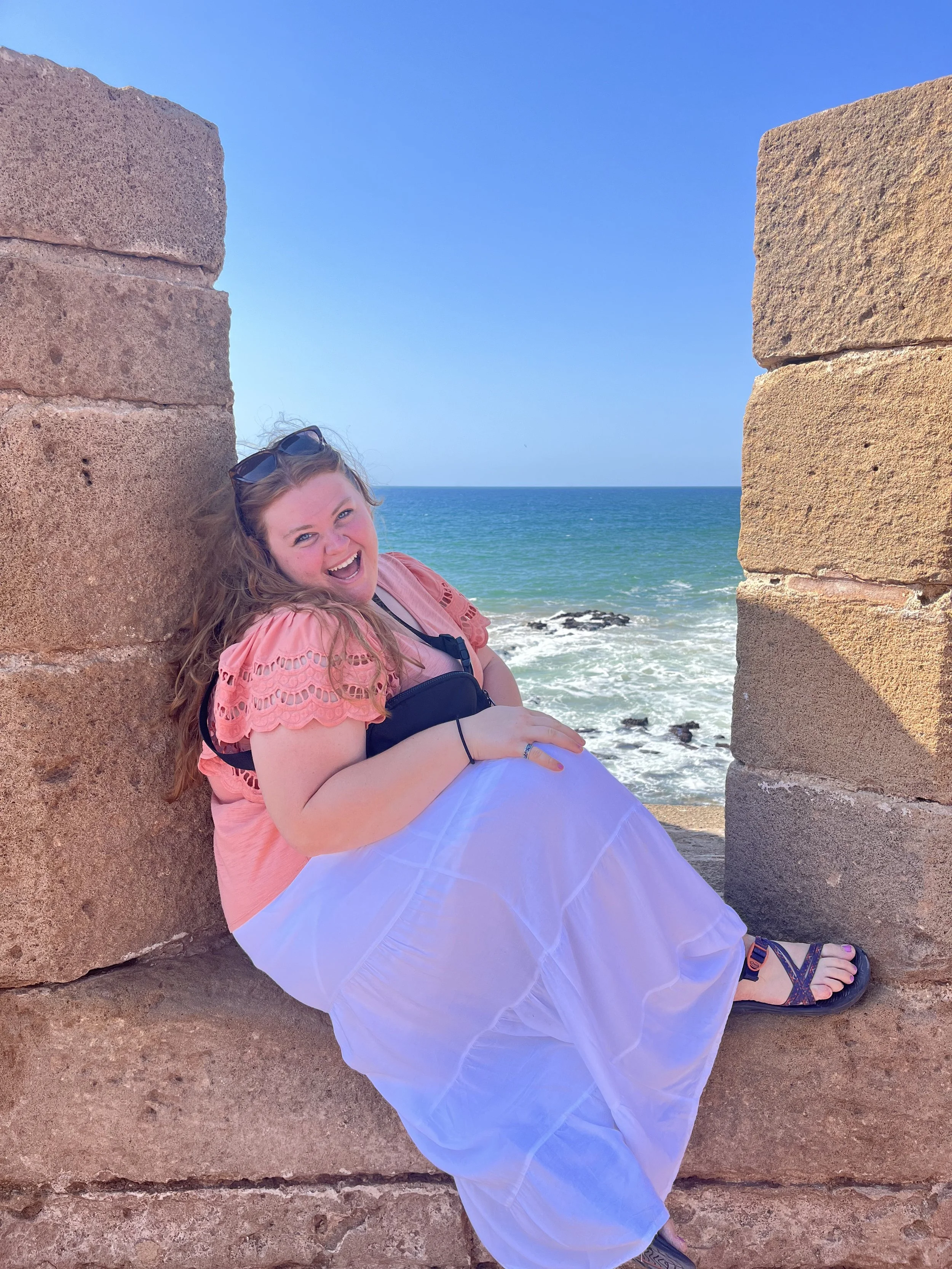"What is Darija? And who is Tal?" by Tal Slon
Salaam 3alaikoom oo mar7aba l’blog! Smitee Tal oo daba kan9ra fAmideast fl’Rabat. fMerika kanskoon fLos Angeles oo kan9ra fljaam3a janoob kalifornia (USC) oo kan9ra larkheologee oo ldeen ool3loom laiken ana min New Jersey. Bare7 ana fa9t fl3ashera oo taftreent lghaif m3 yadee oo shrubt atai min b3d masheent lmdrasa.
“Hello and welcome to the blog! My name is Tal and I am now studying at Amideast in Rabat. In America, I live in Los Angeles and study at the University of Southern California, and I study archeology, religion, and science, but I am from New Jersey. Yesterday I woke up at 10 and ate ghaif for breakfast with my hands and drank tea before going to school.”
Last year, I randomly signed up for Arabic but soon enough I fell in love with the silkiness of its written curves, how the sounds rolled out of my throat, and how roots felt like puzzle pieces. So, I came to Morocco for my senior fall to immerse myself in Arabic. Imagine my surprise, then, when I stepped off the plane and found my fosha to be almost useless in understanding day-to-day life. As you can see from this little introduction, Darija is very different from standard Arabic. The Moroccan dialect is known across the Arab world as being unintelligible to other Arabic speakers. It was described to me as “all the same words as Arabic mixed with all the grammar of Tamazight,” meaning that, for those of us who have only studied or been exposed to fosha, Darija feels almost alien. The perk though, as my language partner put it, is that it’s the perfect spy language: Darija speakers can eavesdrop on most other dialects while maintaining the privacy of their own conversations!
Why is Darija so funky? The 8th-century Arab invasion brought Arabic to the Maghreb where it was met by the native Tamazight tongue. The influence of Tamazight on Darija is incredibly evident—al-shai is called attai for instance. When the Almoravids conquered Spain in the 11th century, Arabic and Spanish began to inhabit the same spaces and the languages informed each other—doll in Darija= mone9a and in Spanish = muñeca while oil in Darija= zeit and in Spanish = aciete. Finally, with the 20th-century French colonization, French words slipped into Darija and can now be found all over the place—fromage for cheese, stilo for pen, tobees for autobus. All this complexity and influence makes Darija infamously hard to learn as opposed to other dialects and some people even question if it’s a true Arabic dialect.
Most of our host families speak very little English; it is all Darija and French. We have all had to rapidly find the most vital Darija words to communicate with our host moms, dads, and families. Here are some tips and a key to some of the most important (or common) words my homestay sister and I have been using this week.
Tips:
French is basically English lots of the time! If you don’t know a word, try saying the English word in a French accent. It works much more often than you’d think.
If someone asks you a very short question (one word) the response is usually just that word right back at them. Labaas? Labaas.
If you know Fosha, just drop all the vowel sounds, smush the letters together, and shorten the long vowels. You’re halfway to Darija!
A picture diagram of the most important Darija Arabic words for the first night of a homestay experience. Don’t be afraid to ask for whatever you need (or don’t want). All the host moms are extremely caring!
A picture diagram of important phrases in Darija Arabic.
Tal Slon is a student from the University of Southern California studying abroad on the Amideast Morocco Area and Arabic Language Studies program during the Fall 2023 semester.








